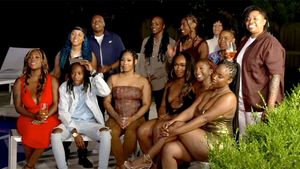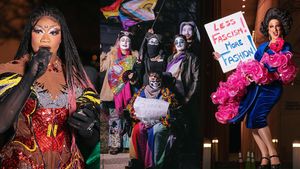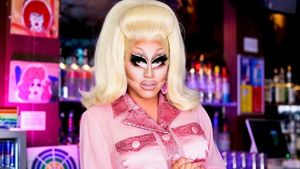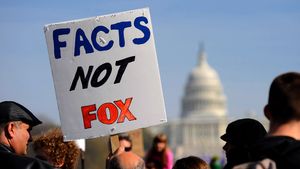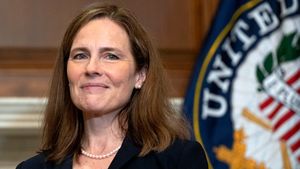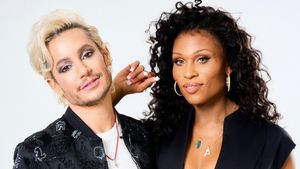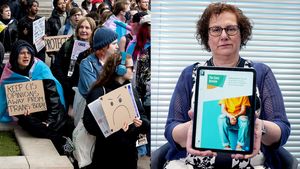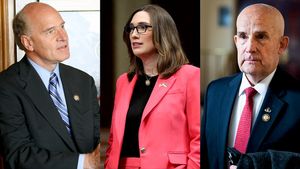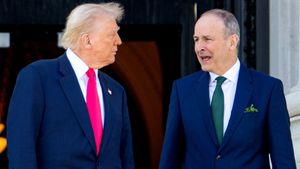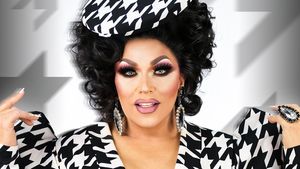President Barack Obama's inaugural address was the most inclusive speech a president has ever given. It was delivered on the 27th anniversary of Martin Luther King, Jr. Day, and the President honored King's legacy when he eloquently spoke of how the many U.S. liberation movements, both current and historic, are interconnected.
"We, the people, declare today that the most evident of truths — that all of us are created equal — is the star that guides us still; just as it guided our forebears through Seneca Falls, and Selma, and Stonewall."
As an African American lesbian, whose identity is linked to all three movements, I felt affirmed. I applaud the president’s courageous pronouncement.
Some African Americans, however, felt “dissed” by the President’s speech. The linkage of their civil rights struggle to that of lesbian, gay, bisexual, transgender and queer (LGBTQ) Americans did nothing to quell their dislike of the comparison. The fact that it was spoken by this President made it sting that much more.
New York Times reporter Richard Stevenson picked up on the tension in his recent article "Speech Reveals an Evolved and Unapologetic President.” Stevenson wrote that Obama, "After spending much of his first term 'evolving' on the question of same-sex marriage and doing too little in the eyes of many African-Americans to address poverty and civil rights, he invoked “Seneca Falls and Selma and Stonewall.”
For many African Americans, especially those male ministers who “professed” to have marched with Martin Luther King, Jr., the reason they scoff at comparing the black civil right struggle to today's LGBTQ civil rights struggle is because of the persistent nature of racism in the lives of black people and the little gains accomplished supposedly on behalf of racial and economic equality. They expected more gains under the first African American president.
Also, many African Americans contest that civil rights gains have come faster for LGBTQ Americans, from the Stonewall Riots of 1969 in New York City to the Don't Ask, Don't Tell Repeal Act of 2010.
The gains in the LGBTQ movement, many African Americans both straight and LGBTQ will contend, is largely because of the structural and cultural exclusion of people of color.
The LGBTQ movement has no doubt made some tremendous gains into mainstream society, a reality that has not been afforded to African Americans as a disenfranchised group, leaving many of them asking, especially after hearing President Obama's now second inaugural address the question, “What's really in this American Dream for us?"
Many African American ministers try to answer that question by either coming out for or against Obama's stance on marriage equality.
more on next page...
\\\
(continued)
Civil rights struggles in this country have primarily been understood, reported on and advocated within the context of African American struggles—past and present—against both individual and systematic racism. Consequently, civil rights struggles of women, LGBTQ Americans, Native Americans, and other minorities in this country have been eclipsed, ignored and even trivialized while educating the American public of other forms of existing oppressions.
While it is also true that employing the narrow understanding that all oppressions are interconnected ignores the salient points about differences within oppressed groups, it is also true that ignoring how oppressed groups can work together truncates the possibility for full and equal rights for all Americans.
LGBTQ activists of African descent, like myself, have long pondered what would be the catalyst to rally those African American Christian ministers to support same-sex marriage and engage the black community in a nationwide discussion. Such a discussion would certainly assist them in seeing the link between Selma and Stonewall -- the link that President Obama so eloquently pointed out.
There were hopes that Obama’s expression in May 2012 of his support of marriage equality would begin talks—allowing those black ministers, who quietly professed to be an ally to LGBTQ community, to come out in favor of LGBT rights to their congregations. And, no doubt, for these African-American ministers, they saw the liability of Obama losing his 2012 re-election bid was far greater than being publicly outed for not being in lockstep with their homophobic brethren.
With the second and final term before him, Obama can be both unapologetically and unabashedly for marriage equality. I thank God with an enormous sigh of relief that Obama no longer has to do a delicate dance with a deeply divided black populace on the issue. He has momentum on his side whether black ministers and community activists side with him or not.
The momentum in support of same-sex marriage in the African American community is seen nowadays along generational lines. It is ironically divided between— the black civil rights era of MLK and post-black civil rights era of Obama.
Follow SheWired on Facebook.
Follow SheWired on Twitter.

























































